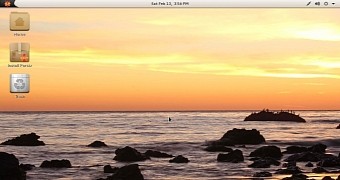The Parsix GNU/Linux development team has announced today, February 6, 2017, that the Parsix GNU/Linux 8.10 "Erik" operating system will reach end of life on March 31, 2017.
Launched last year on the last day of July, the Parsix GNU/Linux 8.10 release was dubbed "Erik" and based on the Debian GNU/Linux 8.5 "Jessie" operating system. It shipped with the long-term supported Linux 4.4.16 LTS kernel series and the GNOME 3.20.2 desktop environment using the GNOME Shell 3.20.3 interface by default.
Among the applications included in Parsix GNU/Linux 8.10 "Erik," we can mention Mozilla Firefox 47.0.1, Chromium 51.0, LibreOffice 4.3.3, VLC Media Player 2.2.1, VirtualBox 4.3.36, GIMP 2.8.14, Gparted 0.19.0, Grisbi 1.0.0, Empathy 3.12.12, as well as X.Org Server 1.16.4 and GLibc (GNU C Library) 2.19.
You need to upgrade to Parsix GNU/Linux 8.15 "Nev"
But as all good things must come to an end, the Parsix GNU/Linux 8.10 operating system will no longer receive security patches and software updates after March 31. Therefore, if you're using this release of Parsix GNU/Linux, you are urged to upgrade to the recently released Parsix GNU/Linux 8.15 "Nev" as soon as possible.
"Parsix GNU/Linux project is going to stop security and technical support for version 8.10 (Erik) as of March 31, 2017. Parsix GNU/Linux Erik (8.10) software repositories will go offline on April 15, 2017 to make room for our next upcoming release," said the Parsix GNU/Linux development team in the official announcement. "We encourage Erik users to upgrade their systems to Parsix GNU/Linux 8.15."
The upgrade process is quite simple, and all you have to do is run the "sudo apt-get dist-upgrade" command in a terminal emulator. The Parsix GNU/Linux 8.10 "Erik" software repositories will remain active for two weeks after the distro reaches end of life, so you have until April 15, 2017, to upgrade your system(s).
However, if you still want to use Parsix GNU/Linux 8.10 "Erik," you'll be able to keep it up to date with the latest security updates by using the upstream "updates" and "security" repositories of the Debian GNU/Linux 8 "Jessie" operating system. More details on that should be available on the project's website.

 14 DAY TRIAL //
14 DAY TRIAL //